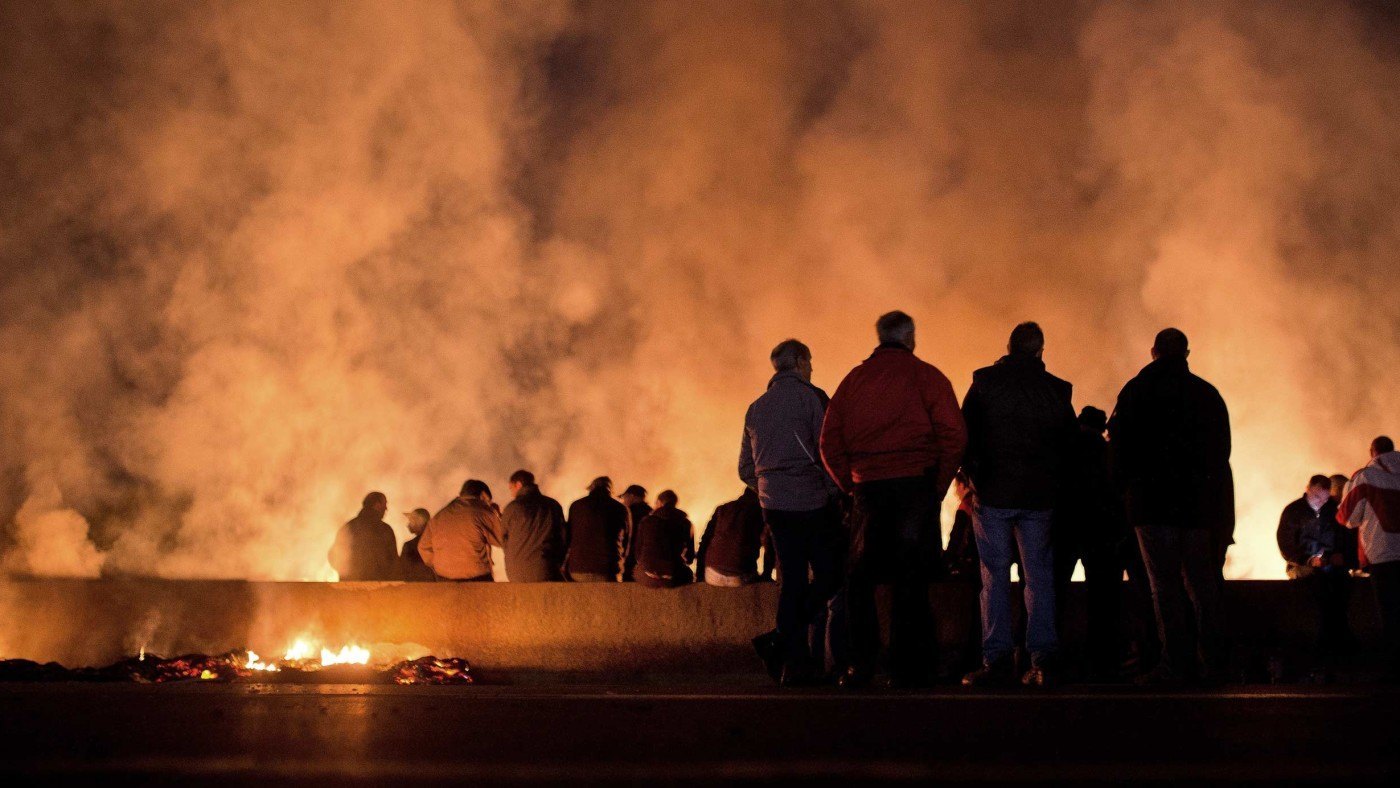How dismal the Remain-mongers sound, how timorous. ‘Yeah, we know that the EU is a bit rubbish, but it’s safer to stick with what you’ve got.’
It’s not just that they say nothing positive about Britain. They don’t even say anything positive about the EU. All their talk of ‘staying in a reformed Europe’ dried up when the renegotiation failed, leaving them to fall back on the Sunk Costs Fallacy. Whether or not we’d join from first principles, we’re told, we’re committed now.
As well as being wrong in general terms – there’s a reason we call it a fallacy – their argument is wrong in that it confuses familiarity with certainty. There will be no status quo option on the ballot paper on 23 June. Voting to stay in is not the same as voting to stay put.
Two things are transforming the EU: the euro crisis and the migration crisis. The question for Britain is whether to make these problems our problems. Having kept the pound and stayed out of the Schengen Zone, we have other options, global options.
And if we fail to exercise those options? We hear a lot about the risks of leaving, but what are the risks of remaining? Here are some of the more obvious ones.
1. Deeper integration
In June, the EU published its response to the euro crisis, a document known as the Five Presidents’ Report. It set out plans for ‘fiscal and political union’, ‘further pooling of decision-making on national budgets’, and harmonisation of ‘insolvency law’, ‘company law’, ‘property rights’ and ‘social security systems.’ It made clear that these things were to be pursued as ‘single market measures’, applying to all 28 states not just those in the euro. This isn’t some think-tank paper, or some manifesto by crackpot MEPs. It represents official Brussels policy. We can’t say we haven’t been warned.
2. More bailouts
It seems clear that yet another Greek bailout will be needed. The real danger, though, is that the euro crisis will spread to Italy or France, making Greece look like a sideshow. As the Governor of the Bank of England admits: ‘There are risks of remaining in the European Union… in particular, in relation to the development of the euro area.’ At the last election, David Cameron boasted that he had a written guarantee that Britain wouldn’t be dragged into any more bailouts. In July, that deal was torn up and Britain – despite all the promises – was dragged into the third Greek rescue package. How many more times will it happen if we signal that we won’t leave?
3. A European Army
Last year, the President of the European Commission, Jean-Claude Juncker, said he wanted an EU army. The European Commission says EU defence integration is not ‘just a political option but a strategic and economic necessity’. Germany’s Defence Minister, Ursula von der Leyen, says: ‘Our future as Europeans will at some point be with a European army’. Again, what are the odds of Britain being able to resist this process if it votes for continued EU membership on the present terms?
4. Rule by Euro-judges
The European Court is rapidly expanding its jurisdiction following the introduction of the EU’s Charter of Fundamental Rights and Freedoms. For example, the EU’s Advocate General ruled a few weeks ago that it was ‘in principle’ contrary to the Treaties to deport Abu Hamza’s daughter-in-law following a criminal conviction. Although she is not a British national, she is ‘sole carer’ to a child born here (the taxpayer, it seems, is ‘sole breadwinner’). Deporting the two of them would thus violate her ‘rights as an EU citizen’.
5. Shrinking Europe
While the EU remains convulsed in the euro and Schengen crises, the rest of the world is growing. But, as long as we remain in the Common Commercial Policy, we cannot sign trade deals with non-EU economies. The PM promised that there would be an EU-Australia FTA, but it has been blocked by Italian tomato growers. There is no progress on an FTA with India after nine years. As the EU’s share of the world economy shrinks, this becomes a bigger and bigger problem.
6. Refugee quotas
The EU has already said that it will repeal the Dublin Convention that allows member states to return illegal migrants to other EU states through which they have passed. It will make any new deal contingent on accepting refugee quotas. If it says this now, before the referendum, we can infer how much more demanding it would be following a remain vote.
7. Treated with contempt
Look at the recent renegotiation. After all the promises, we ended up amending one directive on welfare. If this is how the EU treats us now, before we vote on leaving, how would we be treated after voting to stay?


